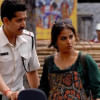Cinematic celebrations: Durga Puja breathes life into iconic films

It's that time of year again when cotton candy clouds cover the sky, the lovely scent of shiuli flowers transports us back in time, and the familiar beats of the dhak finally herald Maa Durga's departure from Kailash and entry into our homes and hearts. The festivities are a perfect time to binge-watch movies to get in the spirit of the season. Here is a selection of films that successfully captured the essence of Durga Puja.

Utsab (2000)
"Utsab," directed by Rituparno Ghosh, is a cinematic masterpiece that beautifully encapsulates the intricacies of familial relationships and the essence of the Durga Puja festival. Released in 2000, the film explores the reunion of a Bengali family during the celebration of Durga Puja.
"Utsab" beautifully uses Durga Puja to draw out the complexities of familial relationships. The festival, with its rituals, traditions, and the close proximity of family members, acts as a catalyst for emotions to surface. During the celebration, buried resentments, unspoken emotions, and long-held secrets begin to unravel.
The traditional aspects of Durga Puja, such as the meticulous preparation, the decoration of the goddess's idol, and the performance of rituals, are interwoven into the narrative. The film highlights how the festival brings the family together and underscores their differences.
Rituparno Ghosh masterfully employs symbolism and tradition to enrich the storytelling. The goddess Durga, representing feminine strength and power, becomes a powerful symbol within the family dynamic. Her idol is crafted with great care, and the rituals associated with her worship emphasize the divine feminine and the importance of family bonds.
The film also touches on the generational shift in the family, as younger members grapple with their changing roles and values in the context of traditional customs and expectations. This exploration is a reflection of broader changes happening in contemporary Bengali society.
"Utsab" subtly underscores the transient nature of life and tradition. Durga Puja, a festival celebrated with great pomp and fervor, is itself a transient event, lasting only five days. This ephemeral nature serves as a poignant reminder of the fleeting moments of joy, unity, and togetherness within the family.
"Utsab" is a compelling and emotionally resonant portrayal of Durga Puja as more than a religious celebration; it is a time of introspection, reconnection, and transformation for a family. Rituparno Ghosh's directorial brilliance allows the festival to become a character in the narrative, symbolizing the richness of Bengali culture and the complexities of family life.

Kahaani (2012)
"Kahaani," a gripping thriller, is set against the backdrop of Kolkata during Durga Puja. The film's protagonist, played by Vidya Balan, arrives in the city in search of her missing husband. The film takes viewers on a journey through the crowded streets of Kolkata, the mesmerizing beauty of pandals, and the infectious spirit of the festival. The film not only captivated audiences with its riveting narrative but also managed to weave Durga Puja into the very fabric of the story, making it an integral and unforgettable element of the film's setting and atmosphere.
Durga Puja is more than just a backdrop in "Kahaani"; it is a character in itself, offering layers of symbolism, contrast, and dramatic tension. The festival's infectious spirit infuses the film with a palpable energy and lends an added dimension to the unfolding mystery. Durga Puja, a festival synonymous with togetherness, devotion, and the triumph of good over evil, serves as an intriguing counterpoint to the film's suspenseful plot.
The film uses Durga Puja's colorful and vibrant celebrations to create an intriguing contrast with the dark and suspenseful elements of the story. The joyful and lively festivities are set against Vidya's somber and relentless search for her husband, creating a palpable tension that keeps audiences engaged throughout the film. The festival's essence heightens the emotional depth of the characters and the unfolding drama. The festivities create an atmosphere of intrigue, mystique, and, ultimately, hope. The juxtaposition of the festival's vibrancy with the suspenseful plot adds a unique layer to the film's narrative.

Devi (1960)
"Devi," directed by the legendary Satyajit Ray, stands as an enduring masterpiece in Indian cinema. Released in 1960, the film tells an intriguing and emotionally charged story that unfolds against the backdrop of Durga Puja. In "Devi," Durga Puja plays an integral and symbolic role, serving as a powerful context for the exploration of faith, devotion, and the consequences of unchecked religious fervor.
"Devi" introduces us to a devoted and traditional village where the young Doyamoyee (played by Sharmila Tagore), referred to as "Devi" (the goddess), is believed to be an incarnation of the goddess Durga by her father-in-law. Her supposed divine powers lead to a growing number of devotees, gradually creating a moral and psychological crisis within the village.

The depiction of the goddess Durga, both in the idol used in the puja and in the form of the young Devi, is a powerful symbol throughout the film. The goddess represents strength, courage, and the divine feminine, and her image is central to the beliefs and actions of the villagers. This symbolism accentuates the clash of tradition and modernity, the significance of the divine in daily life, and the consequences of religious fanaticism.
The festival of Durga Puja, with its heightened spiritual energy, intensifies the ethical and moral dilemmas faced by the characters. The emotional climax of the film during the immersion of the Durga idol underscores the tension between faith and reason, tradition and modernity, and the individual and the collective.
Through "Devi," Satyajit Ray encourages us to reflect on the impact of faith and religious fervor on individuals and communities. The film's use of Durga Puja as a backdrop and a thematic element adds depth and cultural resonance to a powerful and emotionally charged story. "Devi" invites audiences to contemplate the boundaries of faith, the consequences of religious fanaticism, and the complexity of belief systems amidst the backdrop of one of Bengal's most cherished and spiritually rich festivals.

 For all latest news, follow The Daily Star's Google News channel.
For all latest news, follow The Daily Star's Google News channel. 









Comments